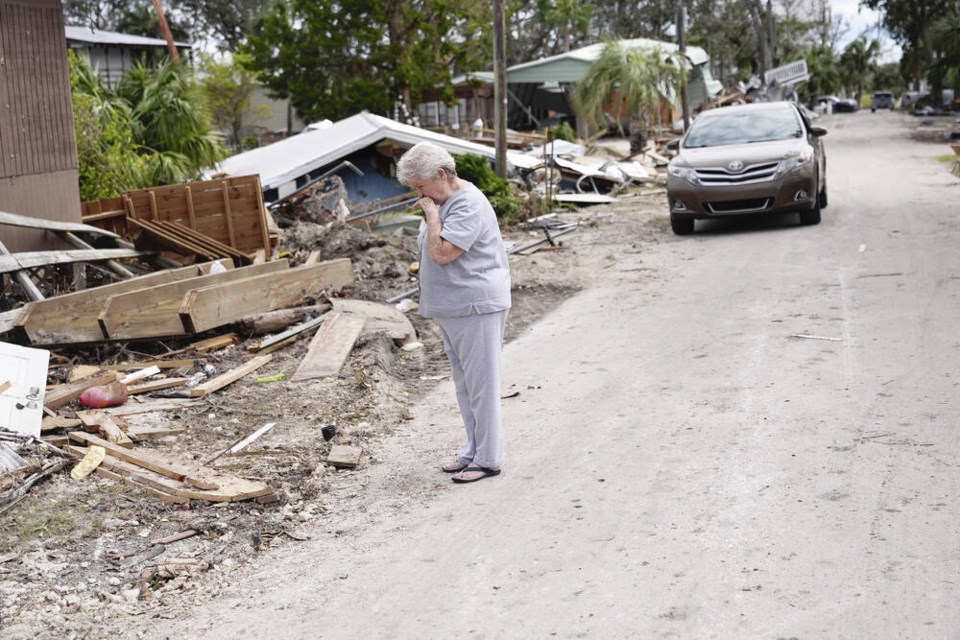My first reaction to the news that the United Conservative Party in Alberta was to vote on a resolution to stop calling carbon dioxide a pollutant and claiming that CO2 was “near the lowest level in over 1,000 years” was that it must be April Fool’s Day.
Then I remembered that this was the UCP, where every single day seems to be a fool’s day.
The resolution is just one small example of a wider phenomenon: The ability of politicians and their followers to display a combination of ignorance and ignore-ance.
Of the two, ignore-ance is by far the more sinister and dangerous. Ignorance is just lack of knowledge – “Oh, I didn’t know that” – but ignore-ance is the wilful ignoring of something you know.
The ignorance is clear in the assertion that CO2, currently at around 420 parts per million (ppm), is near the lowest level seen in over 1,000 years.
Well, the last time it was as high as 420 ppm was 14 million years ago, according to a seven-year long study by more than 80 researchers from 16 nations, published in the prestigious journal Science in December 2023.
Moreover, the National Oceanic and Atmospheric Administration in the U.S. notes that over “the past million years or so, atmospheric carbon dioxide never exceeded 300 ppm.”
Any way you look at it, no way is CO2 near the lowest level in over 1,000 years.
So take your pick. Either the authors of the UCP resolution, and the UCP policy committee that vets resolutions, were ignorant of the evidence, or they were aware of it but chose to ignore it – ignore-ance.
Nor does it end there. The resolution also wants to remove the designation of CO2 as a pollutant. Instead, they want it to be recognized as “a foundational nutrient for all life on Earth” — which it is, at the right levels, for plants, which are the base of our food chains.
Manitoba’s Department of Agriculture, for example, notes that photosynthesis in most plants will be maximized at about 1,000 ppm of CO2. Beyond that, however, performance worsens, and 10,000 ppm (one per cent) of CO2 is sufficient to cause damage and eventually death.
The same is true for humans. The U.S. Centers for Disease Control states that the maximum level of CO2 for occupational exposure is 5,000 ppm, that 30 minutes at 50,000 ppm causes signs of intoxication, and that 70,000-100,000 ppm (seven to 10 per cent) causes immediate unconsciousness and will result in death.
Moreover, the CO2 emitted from fossil-fuel combustion is the main driver of global heating.
The relationship between atmospheric CO2 levels and global heating is very clear and well understood, and was first described by Svante Arrhenius in 1886.
As the past few years have made abundantly clear, climate change is already causing significant levels of death, injury and disease, and that is only going to get a lot worse.
So yes, CO2 is a pollutant, as that word is defined by the Oxford Reference Dictionary: “Any substance, produced and released into the environment as a result of human activities, that has damaging effects on living organisms.”
Clearly, CO2 is released into the environment by human activity (as well as by natural processes), it is toxic to both plants and animals (at levels well below current atmospheric levels), and it is heating the atmosphere and changing the climate, thus harming people directly and indirectly.
So let’s not get too carried away in celebrating CO2!
Still, at least the Alberta government has not (yet) gone to the levels of ignore-ance displayed by the Florida legislature.
In a step not unlike a little child ignoring something horrid in the hope that it will go away, they passed a bill in May that removed all reference to climate change in state law, which does not seem to have stopped hurricanes Helene and Milton from wreaking havoc.
In Canada’s Criminal Code, section 19 reads: “Ignorance of the law by a person who commits an offence is not an excuse for committing that offence.”
It is time to extend that principle to political and corporate leaders and their followers who ignore the laws of physics and nature.
Dr. Trevor Hancock is a retired professor and senior scholar at the University of Victoria’s School of Public Health and Social Policy



